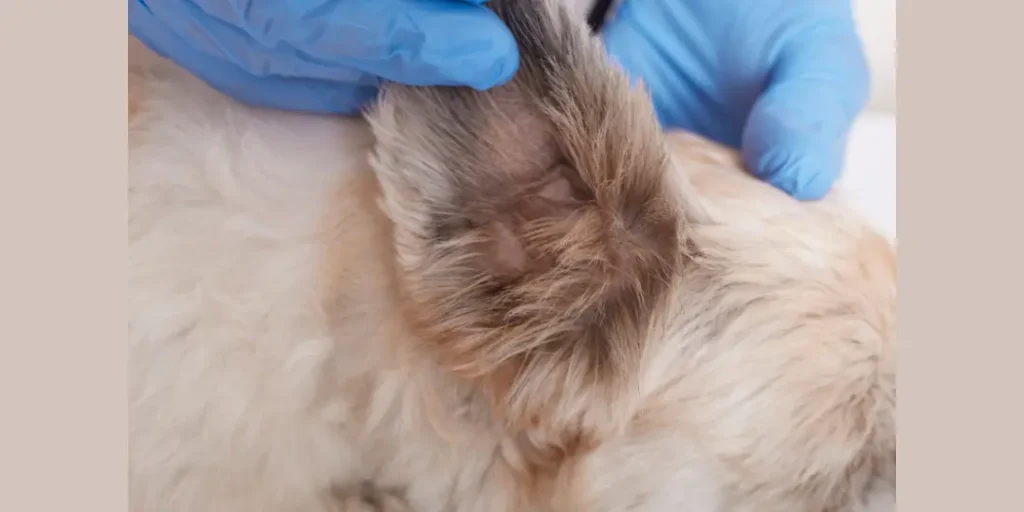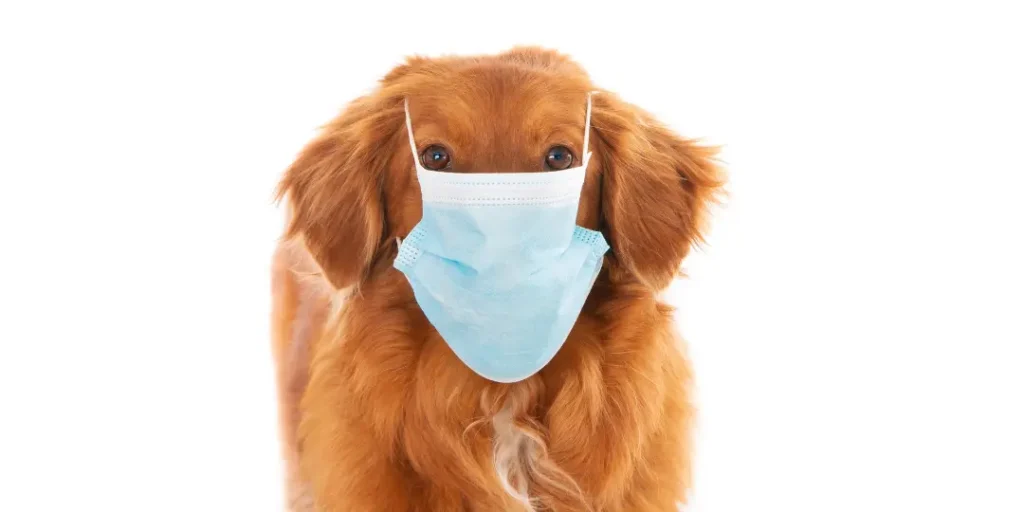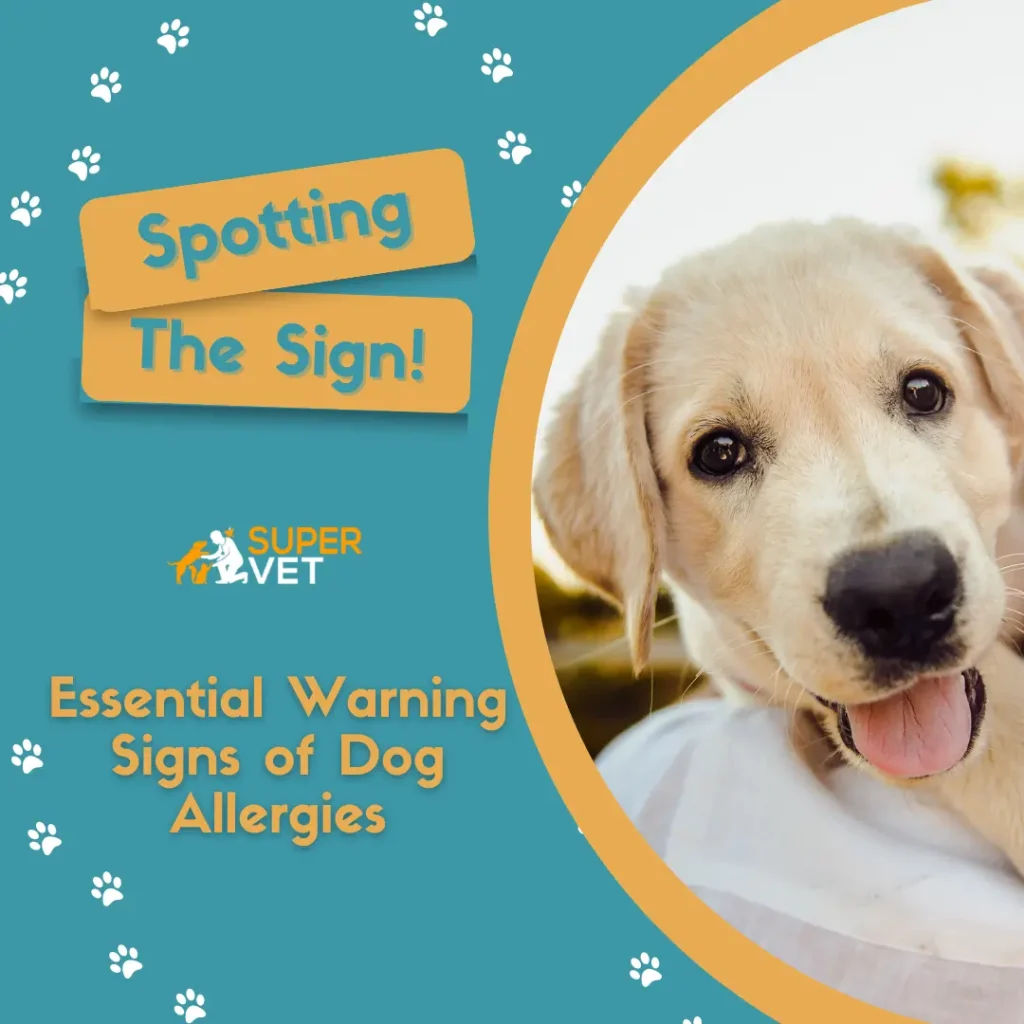In this article, we will explore the essential warning signs of dog allergies.
Dog allergies are a serious and uncomfortable condition that can affect any breed. The signs and symptoms of allergies can range from mild to severe. It may include itchy skin, red eyes, sneezing, and coughing. If left untreated, the condition can worsen and your pet could even develop an infection.
It is important to be aware of the warning signs of dog allergies. If you notice any of the signs, it is best to take your pet to the vet as soon as possible.
In this article, we will help you understand the essential warning signs of dog allergies. Provide you with the best ways to treat the condition so your pet can stay healthy and comfortable.
The Causes of Dog Allergies – Identifying Potential Triggers
Dog allergies can range from mildly irritating to potentially life-threatening, depending on the severity of the allergic reaction. The most common signs and symptoms of dog allergies are skin irritation, breathing difficulties, and gastrointestinal upset.
Skin irritation may include redness, itchiness, bumps, hives, and even lesions. Breathing difficulties can include coughing, wheezing, and difficulty breathing. The main causes of dog allergies are :
- Environmental allergens such as grasses, trees, weeds, pollen, dust mites, mold, and other airborne substances. Environmental allergens can cause a variety of symptoms in a dog. Including skin irritations, sneezing and wheezing, itching, and excessive scratching.
- Pet dandruff can also be a trigger for allergies.
- Chemicals are found in the home such as cleaning products and fabric softeners.
- Food allergies are also a possible trigger and can include proteins from beef, chicken, fish, and dairy.
- A particular type of fabric such as wool and synthetic fibers can cause skin irritations in some dogs. While other fabrics like cotton can also cause an allergic reaction.
- Allergens can also be found in certain pet bedding, toys, and grooming products.
Allergens enter a dog’s body through inhalation, contact with skin, ingestion, or injection. Identifying the potential triggers of a dog’s allergies can help pinpoint the source of the allergy and provide a more targeted treatment plan.
Early Detection of Dog Allergies

Early detection of dog allergies is critical for helping both your dog and yourself manage the condition. Knowing the warning signs to look out for can provide insight into the severity and cause of a dog’s allergic reaction.
Additionally, being aware of the potential symptoms can help you respond to the reaction more quickly. Common signs of dog allergies include:
- Itchy skin: Show signs of itchy skin, such as excessive scratching, licking, or biting at their fur.
- Skin inflammation and redness: Allergies can cause the skin to appear inflamed and red, and in some cases, may also appear scaly or dry.
- Ear infections: Dog Allergies can cause inflammation of the ears, which can lead to recurring ear infections.
- Vomiting: Dogs may experience nausea and vomiting due to an allergic reaction.
- Runny eyes and nose: Watery eyes and a runny nose when experiencing an allergic reaction.
- Gas and bloating: Experience an upset stomach, gas, and bloating due to an allergic reaction.
If you suspect that your dog has an allergy, it is important to contact your veterinarian for a proper diagnosis and treatment plan. Treatment will depend on the severity of the allergy and can range from changes to the dog’s diet to allergy medications or immunotherapy.
Managing Dog Allergies

Managing dog allergies is an important part of keeping your pup healthy and comfortable. Allergies can cause a lot of discomfort and even dangerous reactions for your pet. So it’s essential to know the signs and be prepared to act.
Here are some steps you can take to help manage your pup’s allergies and keep them happy and healthy:
- Monitor Your Dog for Symptoms: Allergies can manifest in a few different ways. Symptoms can include itchiness, hives, rashes, sneezing, coughing, wheezing, watery eyes, and frequent ear infections. It’s important to be aware of any new or worsening symptoms and to bring them to the attention of your vet.
- Keep Your Home Allergen-Free: It’s important to keep your pup away from any potential allergens, both indoors and out. This means removing carpets, keeping your pet away from dust-collecting furniture, and cleaning regularly. As well as monitoring outdoor areas for pollen and other potential allergens.
- Avoid Exposure to Chemicals: Some cleaning products, air fresheners, and even fabrics can contain chemicals that can cause an allergic reaction in your pup. Try to stick to natural cleaning products and consider opting for hypoallergenic fabrics for furniture, bedding, and clothing.
- Try an Elimination Diet: If your pet’s allergies seem to be food-related, you may want to try an elimination diet. This involves eliminating certain ingredients from your pup’s diet. Then slowly reintroducing them one by one to see which, if any, causes a reaction.
- Consider Allergy Shots: In some cases, your vet may recommend immunotherapy or allergy shots for your pet. This involves administering injections of small amounts of allergens to your pup. Which helps to build up their immunity to the allergen over time.
- Talk to Your Vet: Allergies can be tricky to manage, so it’s important to talk to your vet about any concerns you may have about your pup’s allergies. Your vet can help you figure out the best approach for managing your pup’s allergies and will be able to provide guidance and advice.
Conclusion
In conclusion, it is important to recognize the signs of dog allergies in order to provide your pup with the best quality of life possible. Many of these symptoms can be quite subtle.
So it is important to remain vigilant and take note of any changes in your pup’s behavior or physical condition. If you suspect that your dog has allergies, speak with your veterinarian and consider having your pup tested for allergies. With proper treatment, your pup can live a healthy and happy life.
Supervet offers varieties of shampoo and food products for your dog that will provide the best quality of life to your pup.

